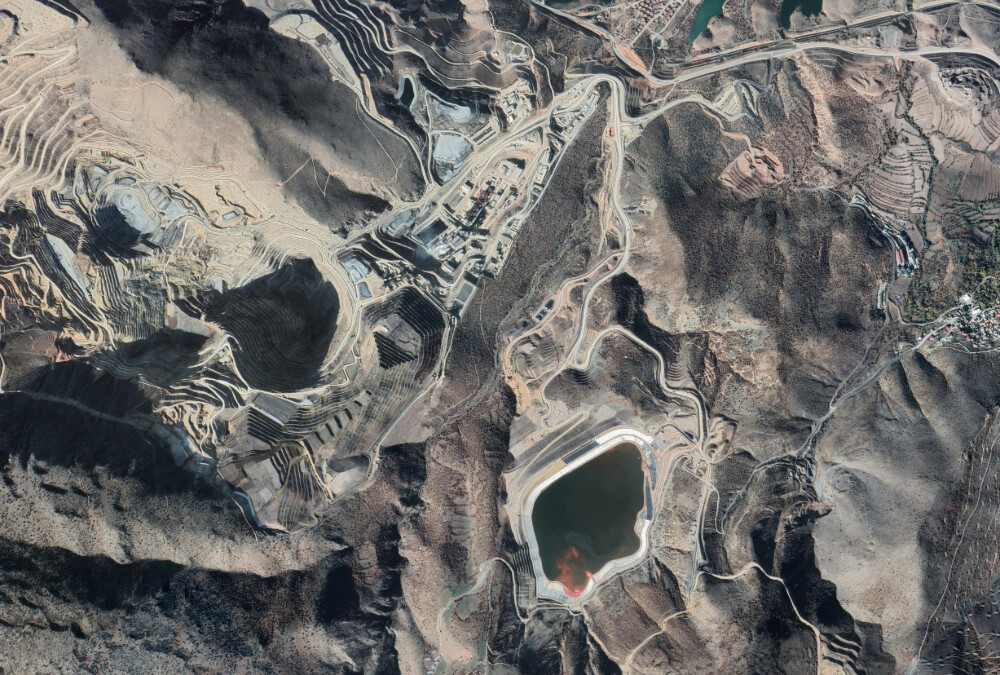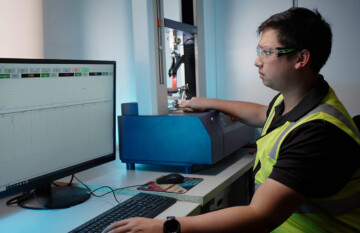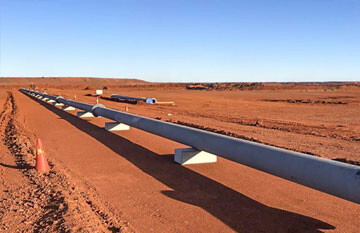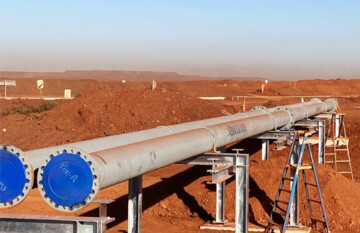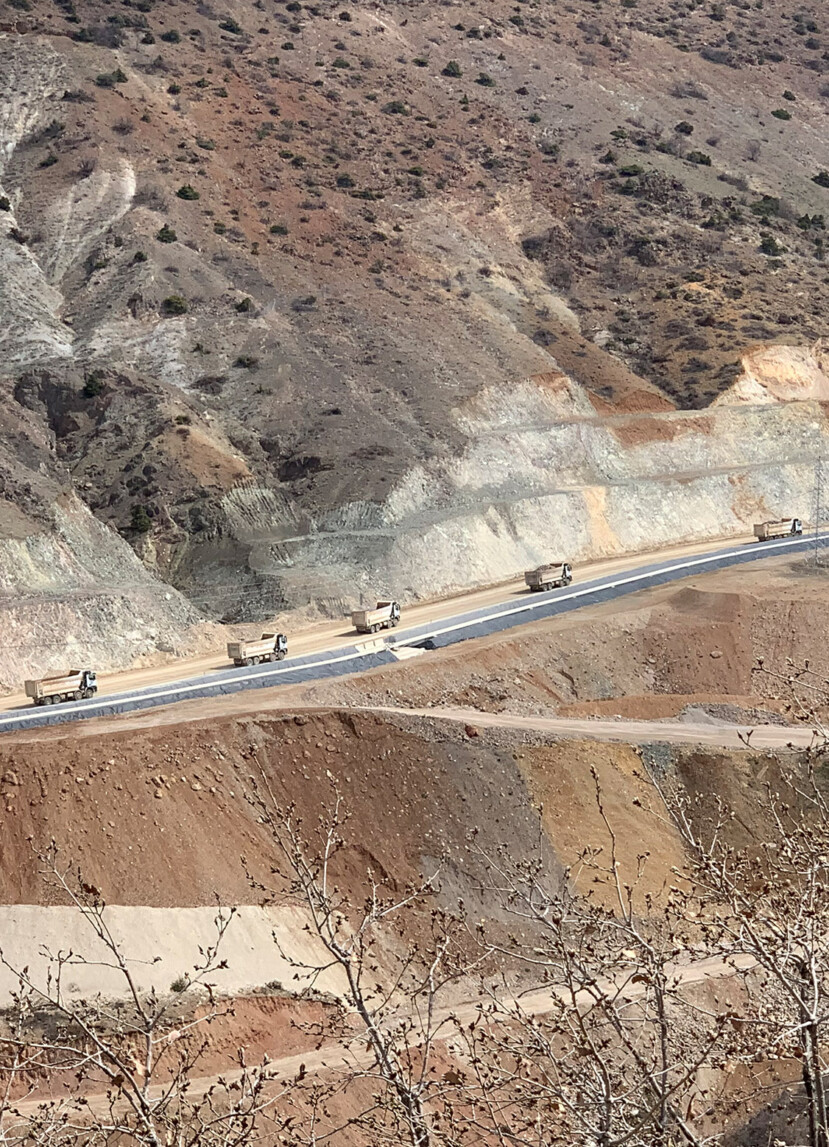
Field studies uncover major issues
The mine is one of the largest gold mines in Europe. In 2020, the open pit operation installed a heavy steel pipeline to handle the corrosive gold tailings slurry. Knowing that the pipeline would corrode, the team conducted regular inspections to monitor its health.
In a regular inspection, the reliability team made a concerning observation.
The pipeline was showing signs of rapid-onset corrosion. Once corrosion starts, it will exponentially increase until the pipeline fails.
It was clear that something had gone wrong with the initial calculations or tailings concentrations, as the pipeline was supposed to last for 15 years—but updated calculations with the newly discovered corrosion gave the pipeline just 18 months to complete failure.
The tailings contained cyanide used in the leaching process and heavy metals like mercury, lead and arsenic. If the pipeline failed, there would be massive environmental and health implications, plus the potential for significant legal consequences.
Given the pipeline’s criticality to the project plus the environmental and legal risks, the maintenance team and senior management knew it was time to start immediate repair or replacement.
They unearthed the section of the pipeline with the worst corrosion to properly inspect.
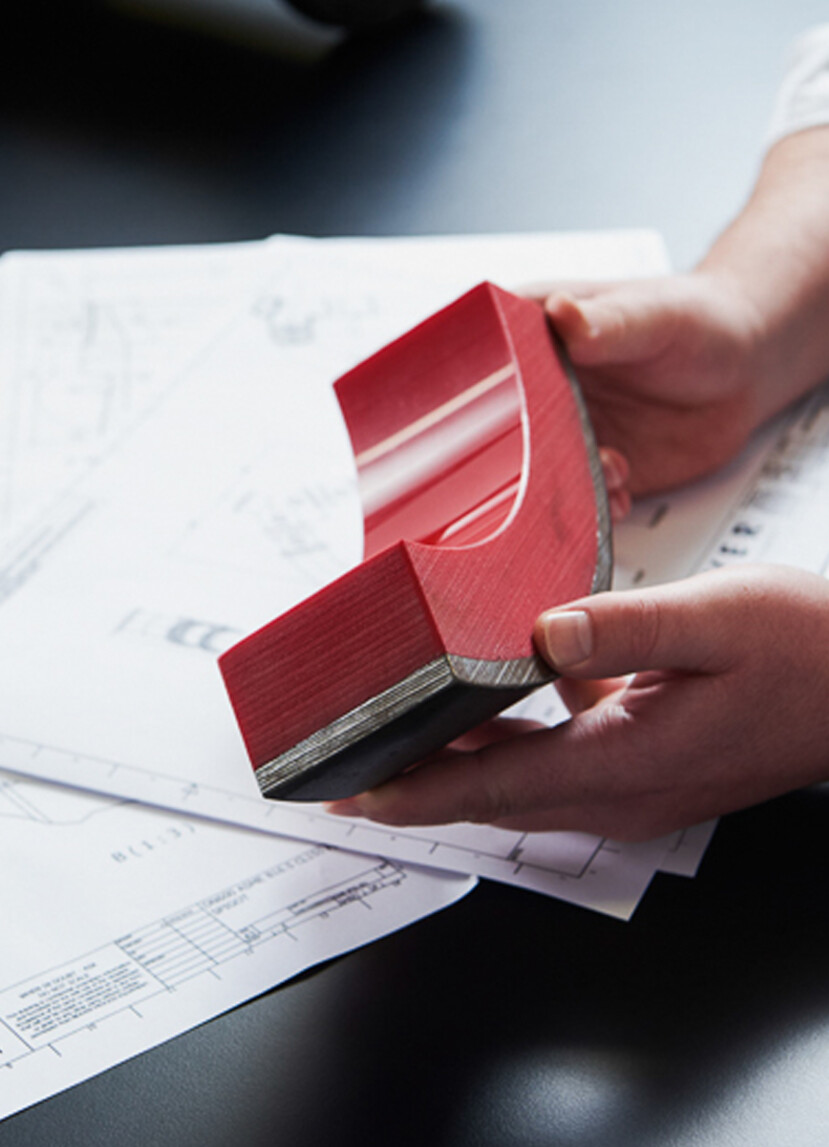
Corrosion testing reveals the cause
With a section of the pipeline uncovered, the team remapped their corrosion modelling and decided that ultimately the pipeline would have to be replaced.
Here’s what they found:
- Using an unlined pipeline for the plant’s highly corrosive tailings, regardless of thickness, wasn’t going to last 15 years. The tailings were highly corrosive, containing cyanide, mercury, and other heavy metals, which were eating away at the carbon steel and making it brittle.
- The added steel thickness was mainly to address sliding abrasion, but the slurry wasn’t overly abrasive. The replacement pipeline needed to be optimised for corrosion resistance first and sliding abrasion resistance second.
The wear rate on the unlined steel had been calculated incorrectly, and the rapid corrosion had come as a surprise, so they needed to act fast.
Using a suitable liner in the replacement pipeline would avoid both problems.
Having done significant research, the team decided that using a polyurethane lined steel pipeline was the best choice for their application.
With the pipeline’s imminent failure probable, they launched a worldwide tender to find the right manufacturer for the replacement.
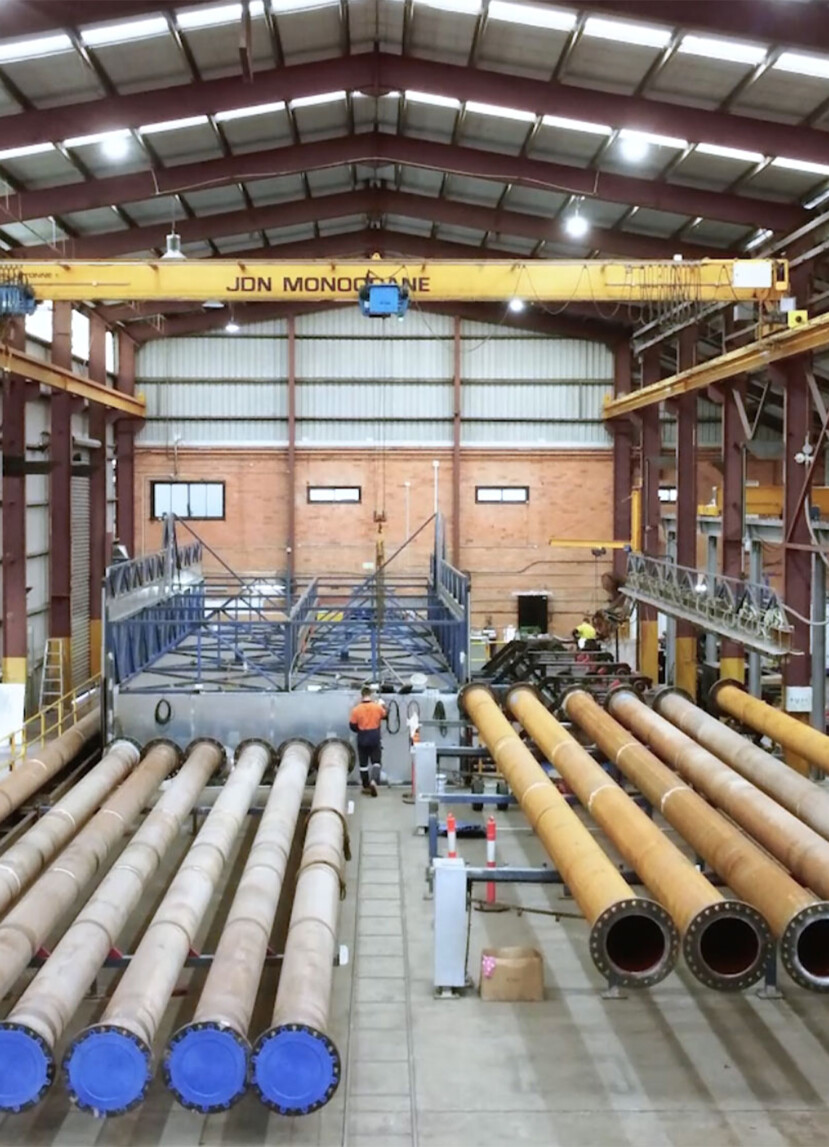
Specifying the pipeline for the life of the mine
After a lengthy process of researching the tendered companies and subjecting them to extended quality assurance research and investigation, the mine chose to work with us to help manufacture the replacement pipeline.
Given the massive problems with the old pipeline, we wanted to deliver a pipeline that would last the lifetime of the mine, and be maintenance free.
Because of the challenging chemical conditions, we recommended the team use Abrasiguard CX-77. We selected this high-performance polyurethane liner to suit the pipeline’s chemical conditions.
To ensure the liner remained free of air bubbles and is resistant to delamination, we ran a vacuum degassing procedure on the polyurethane. After this, we used a high-performance bonding system to ensure the CX-77 liner was chemically bonded to the metal substrate.
Throughout the manufacturing process we have controls to ensure surfaces are free of contamination and that the correct temperatures and processing conditions are met.
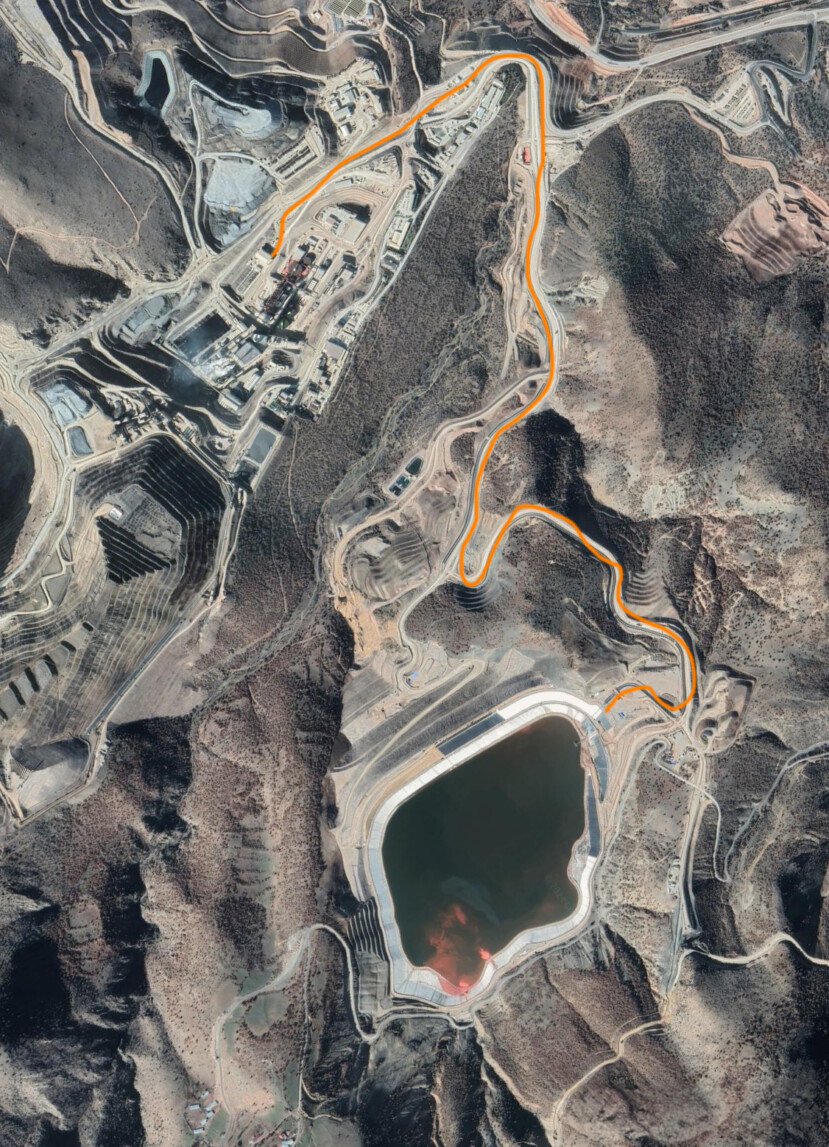
Acting quickly avoids major failure
The timing was critical. Because the existing pipeline was corroding quickly, a full-scale catastrophic failure was probable. Our Brisbane manufacturing team manufactured 4,500m of Class 600 DN400 Abrasiguard polyurethane lined piping in 22 weeks.
A total of 623 spools. 188 bends, 434 straights, and 1 lateral.
All the piping has undergone our stringent testing and quality assurance protocols. Plus, with the custom CX-77 liner, the team can be sure that it will last at least 15 years and likely longer.
It’s great to see our Australian-made technology giving customers the peace of mind that their pipeline is made to last. The teams swift action has stopped the faulty pipeline from being an issue in the short term, and protected them in the long run by ensuring it won’t happen again.
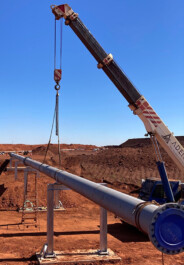
Concerned about corrosion in your pipeline?
Contact us for advice tailored to your pipeline.








